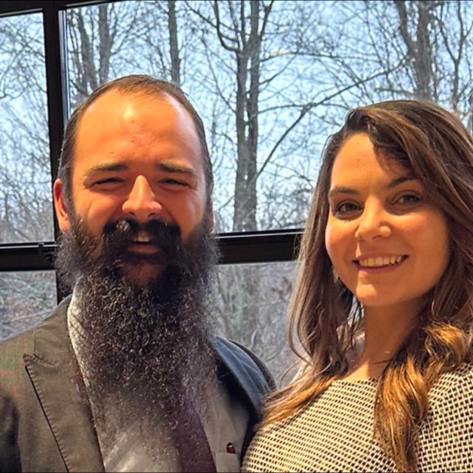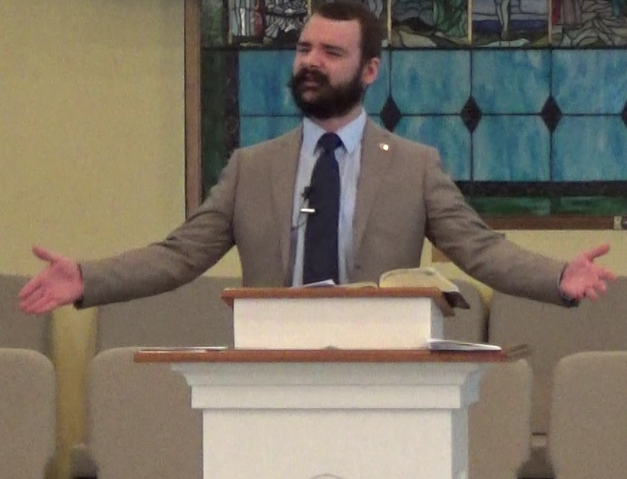Coffee was once considered the devil’s drink of choice. Because coffee was popular among Muslims who drank it to stay awake during their evening worship services, Roman Catholic Church leaders during the 16th century claimed that it was a demonic concoction “of Islamic infidels.” That is, until Pope Clement VIII gave it a taste—and it didn’t take long for him to bless the bean. “This Satan’s drink is so delicious,” he remarked, “it would be a pity to let the infidels have exclusive use of it. We shall fool Satan by baptizing it.”1 And immediately, coffee conquered the continent and flowed all the way to the mugs we fill every morning.
Coffee-hating legalists nearly missed out on one of God’s greatest gifts to mankind, and legalism continues to rob believers of God’s gifts of joy, grace, peace, and Christian liberty. Legalism, if you didn’t know, is when we add man-made rules and religious traditions to God’s word, grading our holiness and that of others based on restrictions God never gave us in the Scripture. Legalism turns us into spiritual hall monitors who police piety based on personal preferences. And legalism rears its ugly head when we measure spirituality by clothing choices, denominational traditions, worship music styles, and strict abstinence from activities not explicitly prohibited in the Bible—things like watching secular movies, wearing blue jeans to church, or enjoying classic rock music. The Pharisees of Jesus’ time were steeped in legalism, demonstrated by their indignant insinuation that His disciples were heathen-like sinners because they didn’t ceremonially wash their hands before eating (Mark 7:1-5).
The apostle Paul warned believers about the danger of legalism in Colossians 2:20-23,
“You have died with Christ, and he has set you free from the spiritual powers of this world. So why do you keep on following the rules of the world, such as, “Don’t handle! Don’t taste! Don’t touch!”? Such rules are mere human teachings about things that deteriorate as we use them. These rules may seem wise because they require strong devotion, pious self-denial, and severe bodily discipline. But they provide no help in conquering a person’s evil desires” (NLT).
Simply put, legalism may appear holy, but it does not make you holy. It may keep your hands clean, but it cannot keep your heart pure.
However, the remedy for legalism is not swerving to the opposite extreme and indulging in unrestrained and careless conduct. The solution is also not more rules—the answer is more Jesus (Col. 2:6). And we must obey the Lord out of gratitude for His saving grace (cf. 2 Cor. 5:14-15; Titus 2:11-12), and carefully assess our obedience according to what God has clearly written in His word. Additionally, we ought to enjoy and embrace the good gifts of God’s creation without guilt, and exercise wisdom while doing so. Otherwise, we will dilute the sweet cup of God’s grace and drink the bitter cup of legalism.
- Rick Beyer, The Greatest Stories Never Told (New York: HarperCollins, 2003), 30.

Brandon is the pastor of Bandana Baptist Church in Bandana, Kentucky, where he lives with his wife, Dakota, and their three dogs, Susie, Aries, and Dot. Brandon and Dakota are also foster parents through Sunrise Children’s Services of Kentucky. Brandon is also a published author and a religious columnist for the Advance Yeoman newspaper in Ballard County, Kentucky. He is also a devotional contributor for Kentucky Today, a news publication of the Kentucky Baptist Convention. His columns are also featured in the Times-Argus newspaper of Central City, Kentucky, West Kentucky News of western Kentucky, and the online blog, Reforming the Heart.







 Brandon is the founder and main contributor to Brandon’s Desk, the blog with biblical resources from his ministry. He is proud to be the pastor of the family of believers at Locust Grove Baptist Church in Murray, Kentucky. He and his wife Dakota live there with their three dogs, Susie, Aries, and Dot.
Brandon is the founder and main contributor to Brandon’s Desk, the blog with biblical resources from his ministry. He is proud to be the pastor of the family of believers at Locust Grove Baptist Church in Murray, Kentucky. He and his wife Dakota live there with their three dogs, Susie, Aries, and Dot.